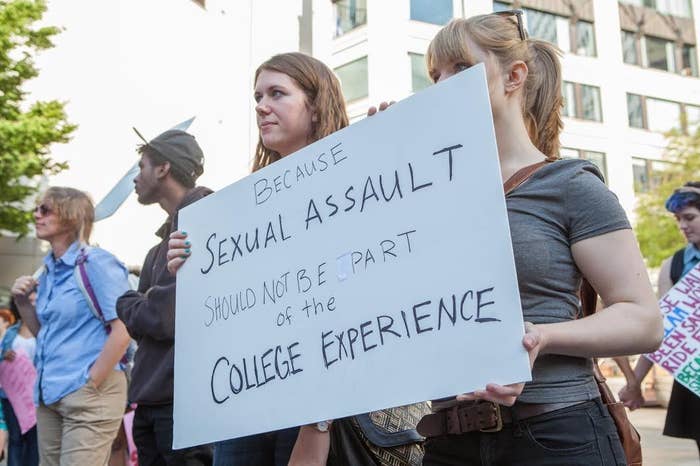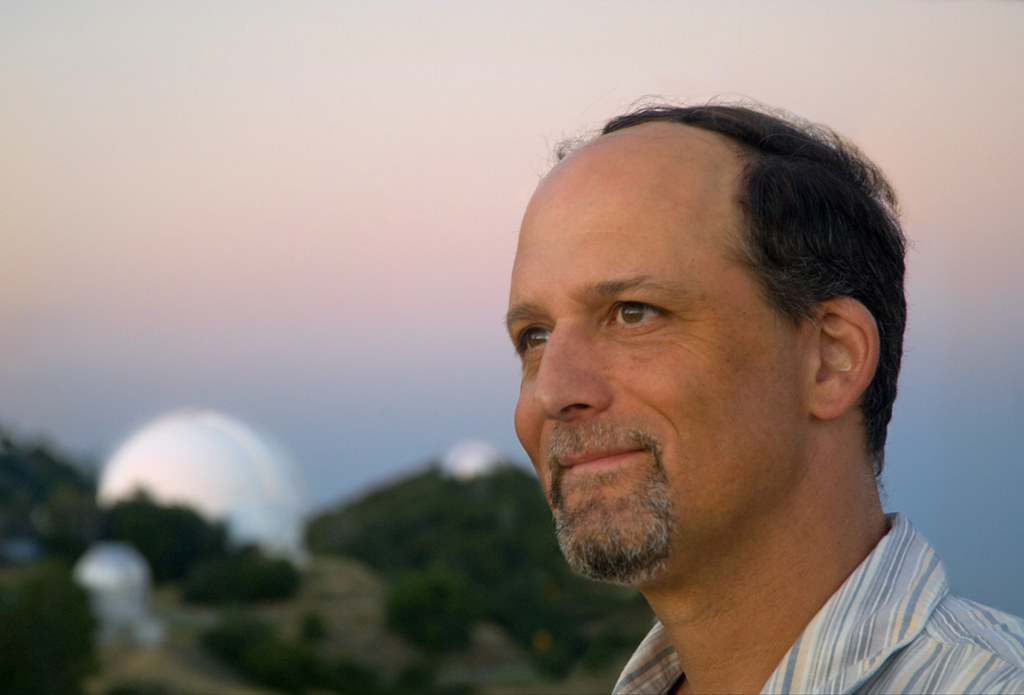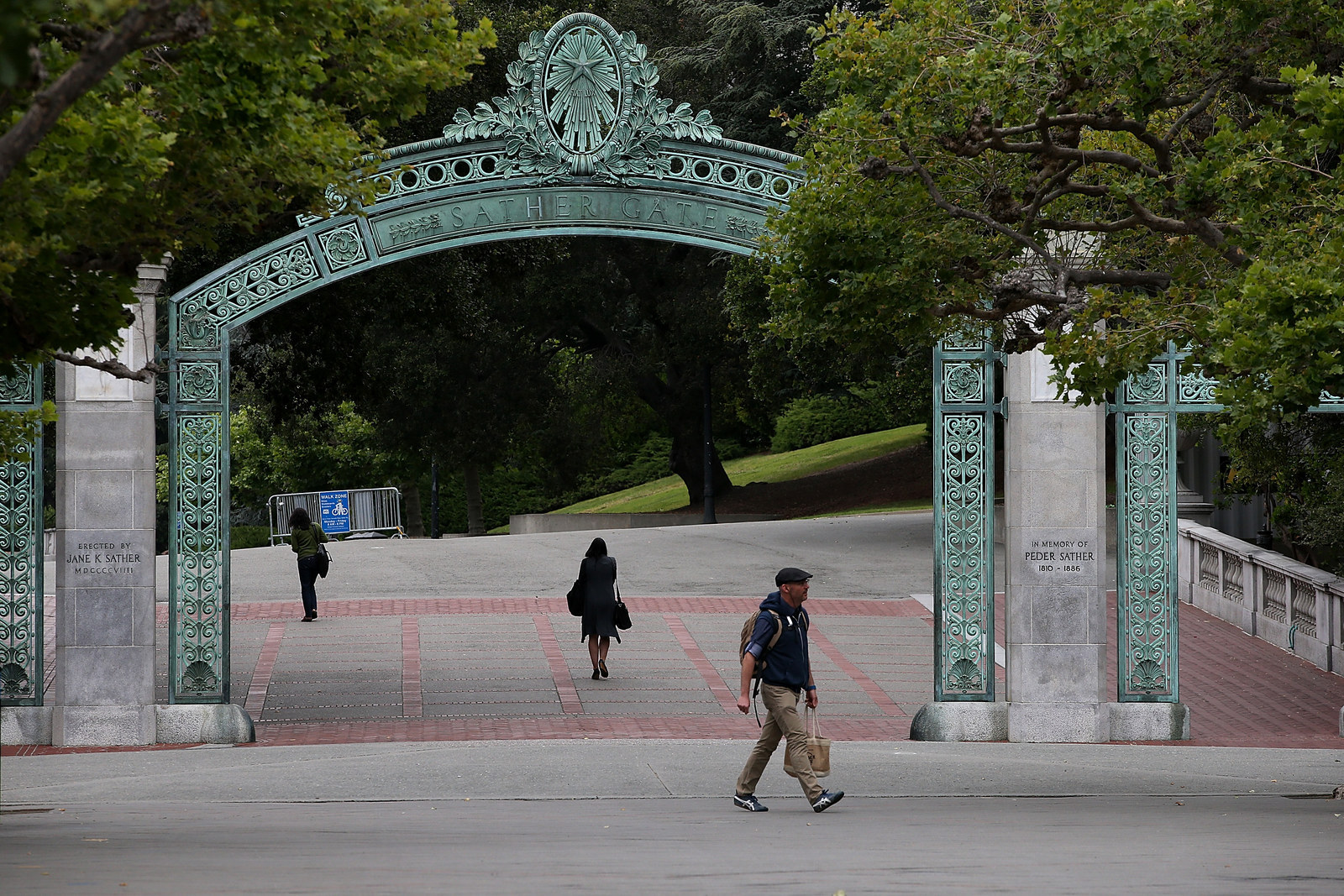
In the first few days after Geoff Marcy, one of the world’s most famous astronomers, resigned from his tenured position at UC Berkeley, many people wondered if the sexual harassment rulebook in academia was finally changing.
Maybe the era when a star professor could kiss, massage, and grope female students; when multiple complaints could go nowhere; when a six-month university investigation could find violations and yet issue no disciplinary sanctions; when in the first few hours after a scandal broke, a department chair could say it was hardest on the perpetrator himself — maybe those bad old days were finally over.
But now, a month later, as the extent of Geoff Marcy’s decades-long behavior comes into clearer view, the conversation has grown considerably less euphoric. Berkeley faculty, other scientists, activists, and pissed-off observers are asking: How could this possibly have gone on so long?
Janet Napolitano, the president of the University of California, said that the Marcy case “has highlighted the urgent need to review University policies that inadvertently made the investigation and resolution of this case more difficult.” She has convened an emergency committee that has until February 2016 to review how investigations are conducted and punitive measures doled out.
Other changes are also afoot. Science departments across the country have gathered in town hall meetings to discuss how to handle the problem of sexual harassment in their fields, and several major conferences have set up panels on the issue. The American Astronomical Society is revising its ethics code to have its own mechanisms for investigations and sanctions relating to misconduct among its members.
But more potent solutions may not be easy to find. A cynical take is that the forces that allowed Marcy to harass women for so many years — his prestige; his ability to bring in funding; the employment protections he enjoyed as a tenured professor; the outdated, onerous, and secretive nature of sexual harassment investigations — are not anomalies of an outlying department, but in many cases defining traits of academia. Undoing these advantages, some experts say, will spur the next big wave of legal battles on college campuses.
Raise your hand if you know of at least one serial harasser/bully in science who's never been publicly named or reprimanded because academia
Sexual harassment in science is not rare. Last year, a survey of 666 scientists found that nearly two-thirds had experienced some form of verbal sexual harassment while doing field research, while 1 in 5 had experienced sexual assault. Overwhelmingly, those experiencing harassment were students or postdocs.
In the early stages of their careers, young scientists are entirely dependent on access to expensive instruments, to vast data sets, and to well-funded research projects — which means they are entirely dependent on the favor of senior faculty members.
“You need to step into their world in order to succeed,” Christina Richey, the chair of the Committee on the Status of Women in Astronomy, told BuzzFeed News. “It leads to this huge power imbalance when you’re heavily reliant on that individual being a decent person.”
Superstar professors create their own centers of gravity. Geoff Marcy was a frequently cited contender for the Nobel, at a university that proudly boasts its 22 laureates. With $900,000 in federal grants and $100 million in a private research effort to find “civilizations beyond Earth,” Marcy brought in the kind of money that most institutions only dream about.
Marcy, through his lawyer, declined to comment. A Berkeley spokesperson told BuzzFeed News that they “categorically reject any suggestion that the process was, at any point, influenced by his status, prominence or research funding.”
But according to many former students, Marcy’s outsize reputation reinforced a culture of silence in Berkeley’s astronomy department.
“Grad students and postdocs had heard about this, and they’d heard about people filing complaints before and nothing happening,” said Therese Jones, a former graduate student in Berkeley’s astronomy department who started in 2009 but left after four years to pursue a career in space policy. “There was a lot of reluctance to try to go through the faculty to do anything else.”
The current co-chair of the department, Gibor Basri, knew about allegations of Marcy’s harassment as far back as 2006, when a graduate student informed him of many instances of sexual harassment that students had shared with her.
Basri has been a close friend of Marcy’s since they first collaborated in the mid-1990s. (He was the author of the department-wide email saying the scandal was “hardest for Geoff.”) He says he was shocked to hear about the sexual harassment allegations in 2006 and immediately went to the Title IX office, a required action for any faculty member who hears such a complaint. But he says he was told the same thing the graduate student who brought the matter to his attention had been told when she went to that office: The women who said Marcy had harassed them needed to come forward themselves to file a formal complaint.
“They told me that without a formal complaint both they and I were quite limited in how we could respond,” Basri told BuzzFeed News. He said he spoke to Marcy, “read him the riot act” about how this type of behavior was “absolutely inappropriate and illegal,” and told the graduate student to let him know if she heard about any more cases. Even as the department chair, he said, he couldn’t do much more than that.
“My hands were tied, and it’s not without some reason that they were tied,” Basri said. “You can’t just say, ‘Oh, I hear you’re a bad guy, I’m going to do this to you.’ That’s why it was very important that formal complaints be filed.”
Basri left his position as chair in 2007 to assume the campus-wide position of vice chancellor of equity and inclusion, then returned as interim chair in July of this year, just before the investigation broke. In the intervening years, the chair was Imke de Pater, one of the department’s few female faculty members.
According to Berkeley’s spokesperson, an anonymous complaint about Marcy’s behavior — an allegation from a third party that “involved Marcy providing professional encouragement to a student and possibly taking her photograph during class” — was officially filed with the Title IX office in 2011. Department chairs are always notified of these complaints, the spokesperson said. (De Pater did not respond to a request for comment.) But because there was only that one formal complaint, the spokesperson added, it “severely limited disciplinary options at that time.”
While Basri says he did his due diligence, others are now asking whether he and others in the astronomy department did enough.
“Their hands may have been tied as far as using formal disciplinary measures, but nobody says, ‘The only way I can get my kid to clean his room is when it gets so bad I can call the health department,’” Michael O’Hare, a professor of public policy at UC Berkeley, told BuzzFeed News.
“They didn’t do what they had to do as colleagues and as friends, in the interest of the field of astronomy and their students."

For Berkeley, Marcy’s reputation may have been a double-edged sword. His celebrated accomplishments reflected positively on Berkeley as a whole. But as whisperings of his misdeeds spread far beyond the Berkeley campus, they had the opposite effect, hampering his department’s ability to recruit and retain talent.
A public incident at the American Astronomical Society’s 2010 meeting in Washington, D.C., for example, raised wide alarm about Marcy’s inappropriate behavior with undergraduate students.
“I know female postdocs were refusing to apply to faculty positions at Berkeley because of this perceived reputation,” Avi Loeb, the chair of Harvard’s astronomy department, told BuzzFeed News. “When a situation like that persists there is other damage that happens to the department that is very real. If this persists, it suppresses diversity on many levels.” Marcy’s fame was also responsible for his swift downfall, Loeb noted.
When change did eventually come, it did not come from the top. After hearing about Marcy’s behavior on an astronomy Facebook group dedicated to diversity in the field, an untenured faculty member named Aaron Parsons decided he had to act.
Parsons alerted two other perceived allies in the department to the issue, telling them that outside of Berkeley, people were encouraging several women to file an official Title IX gender discrimination complaint with the university. They needed the help of people from within the department to shepherd the process. Another, tenured professor, Eugene Chiang (who has since replaced Basri as chair), submitted the first two complaints to the Title IX office last summer.
“On the one hand, it feels like more should have been done,” Parsons told BuzzFeed News. “Why was I one of the first to actually try to go and find other complaints? Why wasn’t more done to put together a case earlier? I think that is a legitimate question. I acted as soon as I had an inkling. Others had more than inklings.”
But in September, when the investigation concluded and Marcy was found in violation of the university’s faculty code of conduct from 2001 to 2010, only seven people — Basri, Marcy, the dean, and the four complainants — were informed. What’s more, the complainants were not told what his consequences would be, other than noting that if he broke the rules again, he would be subject to immediate disciplinary sanctions.
(A Berkeley spokesperson subsequently told BuzzFeed News that Marcy was barred from physical contact with students, other than handshakes. He was also prohibited from socializing with students, providing them with alcohol, entering their living spaces or inviting them to his own, and discussing sex with them.)
After the investigation was complete, the university told Basri to keep an ear to the ground for any future violations, he said. “That struck me as very untenable. The department is unanimous in the feeling that that’s a completely broken policy.”
Basri says he was told not to tell anyone about the case or its results. Instead, many of the faculty members claim they found out about the investigation from the BuzzFeed News story.
“We did work within the system,” Parsons said, “but the system failed us too.”

That the Marcy investigation happened at all owes a great deal to activists who have been shouting loud and clear about the problem of sexual assault on college campuses.
Although Title IX was for decades known as a law concerning college athletics, in 2011 the Department of Education’s Office of Civil Rights sent universities a letter reminding them that the law also covered cases of sexual harassment and violence. College campuses scrambled to update their sexual misconduct rules, but in many cases it was too little, too late: More than 100 universities, including Berkeley, are currently under federal investigation for violating Title IX in their handling of sexual violence cases.
More recently, the dozens of women coming out with allegations against Bill Cosby gave a clear picture of what can happen when victims of sexual misconduct decide to end their years of silence.
By 2014, the women in the Marcy case came forward knowing there were others like them. And when they saw how the investigation panned out, they and others were able to amplify their protests on Twitter and Facebook, sign petitions, and write blog posts saying that it was time for change.
“Universities have been able to rely on the lack of institutional memory that’s created by having students cycle in and out every four years or so,” said Sofie Karasek, one of the three women currently suing Berkeley for its handling of her sexual assault case while she was an undergraduate.
“That means that students that are coming in and are having the same problems as women before them don’t necessarily know the infrastructure of how the university works, haven’t realized that certain tactics are better than others, don’t know who the good allies are,” she said. “With student movements you’ve often had to start fresh. But social media has helped mitigate that.”
But Title IX policies are especially complicated when it comes to faculty protected by tenure and various other employee rights. Unlike harassment between two students, in which case both are governed by the student code of conduct, when a faculty member harasses a student, the separate policies can sometimes act against each other.
“What you’re seeing here is employment culture butting up against the system of public justice — and swift justice — under Title IX,” said Peter Lake, a law professor at Stetson University. “Universities are being forced to ask how all these pieces fit together in a way that no one was really asking prior to 2011.”
Meaningful policy changes will also require a deep re-evaluation of the culture of science that has so far served as the status quo, said Katie Hinde, an associate professor in the School of Human Evolution and Social Change at Arizona State University, who led the survey of sexual harassment among scientists. Change requires more than just the most vulnerable speaking out.
“The culture is changing — I have no doubt the culture’s changing for the better,” Hinde said. “But we’re going to have to see systematic protections that make it no longer a ‘culture of quiet,’ but a culture of accountability.”
CORRECTION
Katie Hinde is an associate professor in the School of Human Evolution and Social Change at Arizona State University, not assistant professor of human evolutionary biology.
